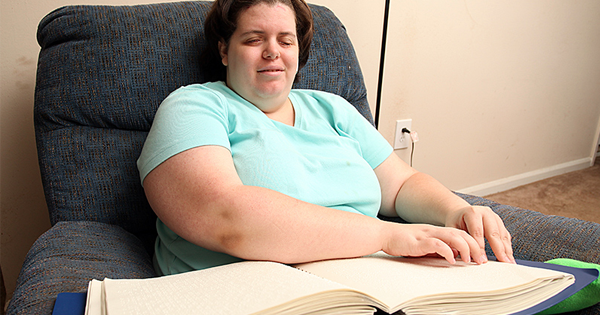Everyone has a dream when they’re a kid. For most people, it’s something like being a fireman, or a ballerina, or being the president.
For Jewel Shuping, it was being blind.
This 30-year-old from North Carolina told People that her lifelong dream of being blind was fulfilled when she took away her own vision.
More specifically, when she was 21, she had a psychologist pour drain cleaner into her eyes. She didn’t get medical attention on purpose, and gradually lost her vision.
Now she’s almost totally blind.
This isn’t the only part of her plan. She prepared for becoming blind by purchasing herself a white cane as a teenager, and learning Braille. She was fluent by the time she was 20. She says that the thought of being blind has been a comfort to her since she was a child.
“I really feel this is the way I was supposed to be born, that I should have been blind from birth,” Jewel told People.
Her condition is rare, but it’s not unheard of. It’s called body integrity identity disorder (BIID), and it makes people believe that for whatever reason, they should have been born disabled.
The most “common” forms of BIID, professor of clinical psychiatry Michael First, M.D. told Women’s Health, come from people who believe they shouldn’t have been born with one or more of their limbs. The next most common cases are people who think they should have been paraplegic. This is the first case he’s heard of where someone wants to be blind.
Strangely enough, the disorder is difficult to treat. Medication and psychotherapy don’t help it, and most people with it do what Jewel did, and attempt to make themselves feel “comfortable” by disabling themselves on their own.
Not only that, but First says they don’t regret their actions. “Their only regret is that they didn’t do it sooner,” he says.
Of course, there’s a ton of stigma surrounding this disorder, and those with the disorder understand that other people think they’re crazy. Jewel’s family, for example, cut her off completely after learning that Jewel blinded herself, rather than losing her vision in an accident as she originally told them.
First doesn’t believe cases like Jewel’s will ever be societally acceptable. “The idea of going from able-bodied to disabled on purpose is very hard to understand,” he says.





